 Back in the day, before the internet was flooded with VPN providers promising “unbreakable encryption” and “absolute anonymity,” AirVPN was a relatively popular VPN provider. Maybe you remember.
Back in the day, before the internet was flooded with VPN providers promising “unbreakable encryption” and “absolute anonymity,” AirVPN was a relatively popular VPN provider. Maybe you remember.
Maybe not. Either way, AirVPN is still around and still has a reputation for being serious about privacy.
I had never used its service before this review, so I was curious to see how well AirVPN would hold its own relative to the competition and my expectations.
I wanted to answer the usual questions one typically has when assessing a VPN provider.
First of all, how fast is AirVPN? Nobody wants a VPN that bogs down their connection.
Other questions I wanted to answer were:
- Does AirVPN work with streaming sites, like Netflix, Amazon Prime Video, and Disney+?
- What are AirVPN’s privacy practices like?
- Is AirVPN secure?
- Does AirVPN work in China?
- What VPN protocols does the service support?
Those questions and more will be covered in this review.
AirVPN Summary
AirVPN started in 2010 as a completely free VPN service based out of Italy. Since then, it has become a paid service that has grown to provide access to over 200 servers in 21 countries. AirVPN is run by activists and privacy advocates. The service adheres to a robust no-logging policy, makes it a point not to collect more information than what’s necessary, and appears to be quite passionate about online privacy and internet freedom. AirVPN provides very good speeds and a decent amount of features.
However, it only supports OpenVPN, and its app isn’t the prettiest I’ve seen. In fact, the app would likely intimidate greener users. But one can still use it to simply select a server and connect. The bottom line is that AirVPN is a fine choice for the privacy-conscious, though the less-experienced privacy-conscious users may have a steeper learning curve.
AirVPN Key data
| OVERALL RANK: #19 of 62 VPNs | |
|---|---|
| Speed | Score: 9 |
| Average Speed*: | 44.5 Mbps |
| Video Streaming Support: | 4K UHD |
| Streaming | Score: 3 |
| Netflix: | No |
| Other Streaming Services: | No |
| Security | Score: 9 |
| Encryption Type: | 256-bit AES w/ Perfect Forward Secrecy |
| Kill Switch: | Yes |
| Log Policy: | No logging |
| Protocols: | OpenVPN |
| Value for Money | Score: 8 |
| Lowest Monthly Cost: | $2.92 |
| Money Back Guarantee: | 30-day money-back guarantee |
| Website | www.airvpn.org |
AirVPN pros and cons
Pros:
- Good speeds
- Strong security on apps and servers alike
- Should work in China
- Kill switch
- Split tunneling
- Supports Linux and routers
- Supports Tor over VPN
- Many, many advanced settings and customization options in the client app
- Good prices
Cons:
- Only supports OpenVPN
- Client app isn’t very user-friendly or pretty
- Client app may overwhelm newer users
- Doesn’t work with streaming services
- No native iOS or ChromeOS apps
Yes, the advanced settings point is on both lists because, to some, it’s a great feature. But to others, it could be a deal-breaker.
We’ll look at all of the above points in this review.
Speed: How fast is AirVPN?
Speed will always be crucial to a VPN’s success. Privacy shouldn’t slow your connection down to a crawl. However, any VPN will somewhat slow down your connection.
All of the speed tests, taken together, across all locations and times tested averages out to 44.5 Mbps download speed.
I tested servers in North America, Europe, and Asia, and I have to say, the results were quite good. I would argue that you won’t feel the slowdown in your day-to-day unless you have a very fast internet connection (i.e., well over 100 Mbps).
Here are the average speeds by region:
- North America (where I’m located): 64.3 Mbps
- Asia: 31.6 Mbps
- Europe: 37.6 Mbps
To give this some context in terms of other VPN providers, ExpressVPN pegs the fastest speeds we’ve tested at 135 Mbps and NordVPN comes in second with 115 Mbps. So although AirVPN’s speeds aren’t bad, they can’t compete with the bigger players in the industry.
All of the speed tests were run using the OpenVPN protocol over UDP. OpenVPN is the only available protocol with AirVPN. And that’s kind of a blessing and a curse at the same time.
It’s a blessing in the sense that I’m happy to see that AirVPN doesn’t support weak and obsolete VPN protocols, like PPTP. But, at the same, it would be nice if it supported IKEv2 and WireGuard – which are both deemed very secure.
Still, the OpenVPN performance is quite good. Perhaps in the future, AirVPN will expand its supported protocols.
Because AirVPN supports routers, I could configure a connection on my router and connect my PS4 to the VPN. Online gaming over AirVPN was nice and smooth. I didn’t experience any lagging or disconnects—very good gaming experience.
See also: Fastest VPNs
Supported devices & apps
AirVPN supports the following platforms:
- Windows
- macOS
- Linux (includes Raspberry Pi)
- Android
- iOS
- ChromeOS
- Routers
That’s fair coverage. However, AirVPN doesn’t supply a native client for iOS or ChromeOS. A native Linux app is certainly welcome. But we’d like to see native iOS app, at the very least. That feels like a given in 2021.
AirVPN does provide its users with a configuration generator, which should simplify things for most.
Scrolling down enables you to select an individual server.
AirVPN allows you to connect up to five devices at once. That’s essentially the industry-standard, though some providers allow more, and others even allow unlimited simultaneous connections. Still, five isn’t bad.
The app has a name, for some reason: Eddie. And its design is… not very pretty, or user-friendly. Clearly, the app was designed a while ago and could really use a makeover. It isn’t pleasant.
The app is overflowing with advanced settings and customization options, which, to some, may just be what they’re looking for, but to others, it will only be intimidating. I don’t want to discourage VPN providers from exposing settings to their users. But there’s a threshold beyond which it can become a deterrent.
Ironically, the app has a setting called “Expert Mode,” which didn’t seem to do anything when I activated it. But I just thought I’d mention it because the app’s “normal” mode very much feels like what most would consider “expert” mode.
You can select your server by clicking the Servers menu on the left side of the app. And you can blacklist or whitelist the servers of your choice. This lets you create a customized list of VPN servers. You can also achieve this with the Countries list. It’s completely optional.
Clicking the sliders icons on the bottom left is what opens the app’s Settings menus, giving you access to a dizzying number of options and settings.
However, simply logging in to the app and double-clicking a server from the list will get you connected within seconds.
Routers
AirVPN supports all OpenVPN-capable routers. Most routers that support VPN connections support OpenVPN, so it shouldn’t be too difficult to find a compatible router.
Check out this guide on VPN routers if you’d like more information on the subject.
As I mentioned above, I was able to configure AirVPN on my router to connect my gaming console, and it worked very well.
Configuring a VPN on your router has the double advantage of allowing you to connect devices that don’t natively support VPN connections. It also enables you to bypass your provider’s limit on simultaneous connections. Regardless of how many devices are connected to the VPN through the router, as far as your VPN provider is concerned, it only counts as one connection.
Streaming
If streaming over a VPN is important to you, you’ll probably be better served by a different VPN provider. In my tests, I was unable to get any streaming sites working over AirVPN. Netflix didn’t work. Amazon Prime Video didn’t work. Disney+ didn’t work.
After connecting to a UK server, I also tried some British streaming services, and I didn’t have any more luck.
Streaming is definitely not an area in which AirVPN excels.
Here are our recommended VPNs for streaming if you’re looking for more information on that topic.
Does AirVPN allow torrenting?
Yes, it does. AirVPN supports P2P file-sharing on all of its servers. There’s nothing to configure, no hoops to jump through. Simply connect to the VPN server of your choice and start torrenting.
AirVPN’s built-in kill switch, which is activated by default, will block all traffic from exiting your device if the VPN connection ever drops. That way, you won’t be sending out unencrypted packets to the internet. A kill switch is very convenient, especially if you need to leave your connection unattended.
In my tests, torrenting was fast and smooth. I didn’t run into any issues whatsoever. Good stuff.
If you’re big on torrenting, you can check out our recommended VPNs for torrenting.
Does AirVPN support split tunneling?
Yes, it does.
Split tunneling or selective routing enables you to choose where you route your traffic: through either the VPN or through your default ISP connection. It’s become a very popular feature among VPN providers today.
Many VPN providers that support split tunneling give you the option of defining traffic by IP address, hostname, or application. Having the ability to route traffic based on the app is very practical as you won’t always be aware of the hostnames or IP addresses a specific app connects to.
Unfortunately, AirVPN only allows you to define which traffic is routed through which gateway by IP address or hostname. While it’s still useful, its usefulness is limited by the fact that you can’t route your traffic on a per-app basis.
Here’s how to enable and configure Split Tunneling with AirVPN:
- Click the sliders icon menu on the bottom-left side of the app.
- From the Settings menu, select Routes.
- To add an IP address, IP address range, or a hostname, click the + button on the top right.
- Type in the IP address, IP address range, or hostname.
- Select either Inside the VPN tunnel or Outside the VPN tunnel, based on where you want to route that traffic.
- Click Save.
You’ve configured split tunneling.
Security, privacy, and logging
AirVPN being run by activists and privacy advocates, I was expecting its privacy and security practices to be pretty much top-notch.
Looking at its privacy policy, we find this at the top:
This is good and comprehensive. While everything is based on Europe’s GDPR privacy legislation, the policy takes the time to state that users outside the EU will benefit from the same level of protection or higher. Good, yet a bit vague.
A bit lower down, we find the following:
Things get a little bit more precise here. And we like what we see.
AirVPN commits to not logging your IP addresses or your traffic. Great stuff. However, I would have like to see AirVPN provide a more comprehensive list of all the information it commits not to collect. Many other VPN providers do this, and I appreciate that approach. It enables me to quickly get an idea of which data points the provider collects, assuming that whatever didn’t make that list is collected. However, AirVPN’s statement isn’t a comprehensive list but more of a general statement.
Still, that statement is clearly on the side of not collecting data. But it’s all of the information AirVPN provides about its technical security measures that really bolster its claims on privacy and logging:
Clearly, AirVPN has put some thought into its security practices, and it isn’t interested in collecting user data. We like that.
In terms of the encryption used, again, AirVPN provides a lot of technical information:
So, AirVPN supports:
- AES – CBC or GCM – at 256, 192, and 128 bits
- 4096 DHE-RSA keys
- Perfect Forward Secrecy, which ensures that your past sessions cannot be decrypted with your current key, even if it were compromised.
This is very secure indeed.
AirVPN, in line with the industry, provides shared IP addresses to its users. This makes it much harder to correlate traffic to a specific user.
I was also happy to see that AirVPN appears to be leakproof. I didn’t run into any IP address, DNS, or WebRTC leaks.
IP Test – Without AirVPN
IP Test – With AirVPN
DNS Test – Without AirVPN
DNS Test – With AirVPN
AirVPN provides its own, in-tunnel DNS servers. But you can override that setting with your own custom DNS server, such as the DNS servers provided by OpenNIC. The in-tunnel AirVPN Dns servers are configured as follows:
AirVPN servers
AirVPN’s network consists of 242 servers located in 21 countries.
I know that seems small compared to the providers that offer thousands upon thousands of servers. But personally, as I’ve stated before, I rather like it when a VPN provider has a smaller network. It gives me the impression that more care goes into the configuration of each server.
Besides, do you really need access to 8000 VPN servers? Probably not. As long as they have enough bandwidth for the customer base, 242 servers should be more than enough for anyone.
And again, AirVPN’s app allows you to create a customized list of only your preferred servers with its whitelist/blacklist approach.
What is AirVPN’s customer service like?
AirVPN provides email support to its customers, along with its user forum. I wanted more information on whether or not AirVPN officially supports connecting from China. I had already looked at its support forum and found that a subset of users was apparently connecting from China, but there was no official word from AirVPN.
So I decided to write an email to AirVPN’s support department and directly ask one of its representatives.
I got a reply in less than 24 hours. The reply was courteous and helpful, and it directly answered my question, as you’ll see in the next section. Some might have hoped for a live chat option, but there isn’t one. I don’t think that’s really a big deal.
As far as its customer service goes, I can’t complain. The help I got was quick and useful.
Does AirVPN work in China?
As you now know, I wasn’t able to find information on whether or not AirVPN works in China, so I decided to write an email to its customer support team. Here is the reply I got:
So, according to AirVPN, by following the above instructions, it should work in China.
However, we tested 59 VPN providers to find out which ones worked in China. AirVPN was one of them – and it failed. Though I don’t believe the above instructions were tested.
So your experience may vary.
Pricing
AirVPN provides more subscription terms than most providers. The following terms are available (prices are in Euros):
- Three days – €3
- One month – €7
- Three months – €15 – works out to €5/month
- Six months – €29 – works out to €4.83/month
- One year – €49 – works out to €4.08/month
- Two years – €79 – works out to €3.29/month
- Three years – €99 – works out to €2.75/month
Each subscription includes all of the features. And each subscription is backed by a 30-day money-back guarantee.
These are very good prices that are lower than most of AirVPN’s competitors. The two and three-year plans are particularly attractive to the thrifty.
Do I recommend AirVPN?
I absolutely do. But…
AirVPN is a fine VPN provider that takes the necessary steps to secure its servers, its apps, and one which minimizes data collection as much as it can. Its prices are excellent, and the service supports Linux (with a native client app) and routers as well. AirVPN also provides many features, like split tunneling, a kill switch, Tor over VPN (which routes your VPN connection over the Tor network, after the VPN connection is made), and advanced options and settings galore.
That last point is the reason for the above “but.”
AirVPN’s native app is not very user-friendly. Not very user-friendly at all. Plus, it’s one of the ugliest VPN apps we’ve seen. Let’s not judge a book by its cover – the app is perfectly functional and provides way more settings than most. But that’s also one of its downsides. AirVPN’s app would be very confusing for a new VPN user. Thankfully, as I mentioned before, you can simply log in and double-click on a server within the app, and you’ll be connected within a few seconds. So new users don’t need to touch any of the million settings that are exposed in the app. But it may well scare some users away.
In fact, if you’ve never used a VPN before, I wouldn’t recommend signing up to AirVPN. I’d probably direct you towards a more beginner-friendly VPN provider, which you can learn more about below.
AirVPN also doesn’t provide native apps for iOS and ChromeOS. But, in a sense, it may be a blessing in disguise because the third-party clients you’ll use to connect will be prettier and have a much simpler user interface. Plus, AirVPN provides a configuration generator, which should remove most of the pain points associated with a manual connection.
Another downside is that AirVPN doesn’t unblock streaming sites. But AirVPN brands itself as more of a privacy-enhancing service than a streaming site unblocking service. And I’m fine with VPNs that want to stay closer to their core mission. And AirVPN does an excellent job at that.
The bottom line is that AirVPN is a good, private, and secure VPN service. It’s clearly geared towards more advanced users, so those new to VPNs will be better served by a less, shall we say, specialized VPN provider. But even new users could do much, much worse.
AirVPN is recommended.
AirVPN alternatives
NordVPN
NordVPN is a very well-known Panama-based VPN service. It provides a wealth of features for security, privacy, and convenience. Ad-blocking, DNS leak protection, robust encryption, and VPN kill switch have you covered on the security front. A strict no-logging policy, a thoughtful Privacy Policy, and anonymous payments have your back for privacy. Dedicated P2P servers, native apps for every major platform, and up to six simultaneous connections (or more with a VPN router) make NordVPN a very user-friendly service.
Surfshark
Surfshark is another provider worth looking at. I believe it to be the cheapest VPN service I’ve seen, with subscriptions starting at only $1.99/month. Surfashark only supports secure protocols and works with streaming services. It adheres to its strict no-logging policy and works in China. Surfshark also allows an unlimited number of simultaneous connections. Definitely worth checking out.
ExpressVPN
ExpressVPN is one of the larger players in the commercial VPN market and benefits from an excellent reputation. Its privacy and security practices are extremely good. All of the VPN servers run from volatile memory (RAM) and are booted from read-only disks. This setup essentially guarantees that no remnant data (logs) can exist on the system’s hard drives, which is great for user privacy. ExpressVPN is a little more expensive than most providers out there, but it’s fast, secure, unblocks streaming sites, and works in China.
How does AirVPN compare to other VPNs?
Here’s a table comparing AirVPN to two extremely popular and highly rated VPN providers, NordVPN and ExpressVPN.
| No value | AirVPN | NordVPN | ExpressVPN |
| Website | airvpn.com | NordVPN.com | ExpressVPN.com | Average Speed (Mbps) | 44.5 Mbps | 300 Mbps | 300 Mbps | OpenVPN data encryption | 256-bit AES w/ Perfect Forward Secrecy | 256-bit AES | 256-bit AES | Kill Switch | Desktop only | Allows Torrenting | Connection logs | Some aggregated data | Unblocks Netflix US | Unblocks Prime Video | Unblocks Hulu | Unblocks BBC iPlayer | Lowest monthly cost | $2.86 | $3.09 | $4.99 | Money back guarantee | 30 days | 30 days | 30 days | Overall rating | 6 | 9.7 | 9.3 |
|---|---|---|---|
| Best deal (per month) | $2.86 Save 60 % on the three year plan | $3.09 Up to 77% off 2 year plans + 3 months free | $4.99 SAVE: 61% + 4 months free on 2 year plans |

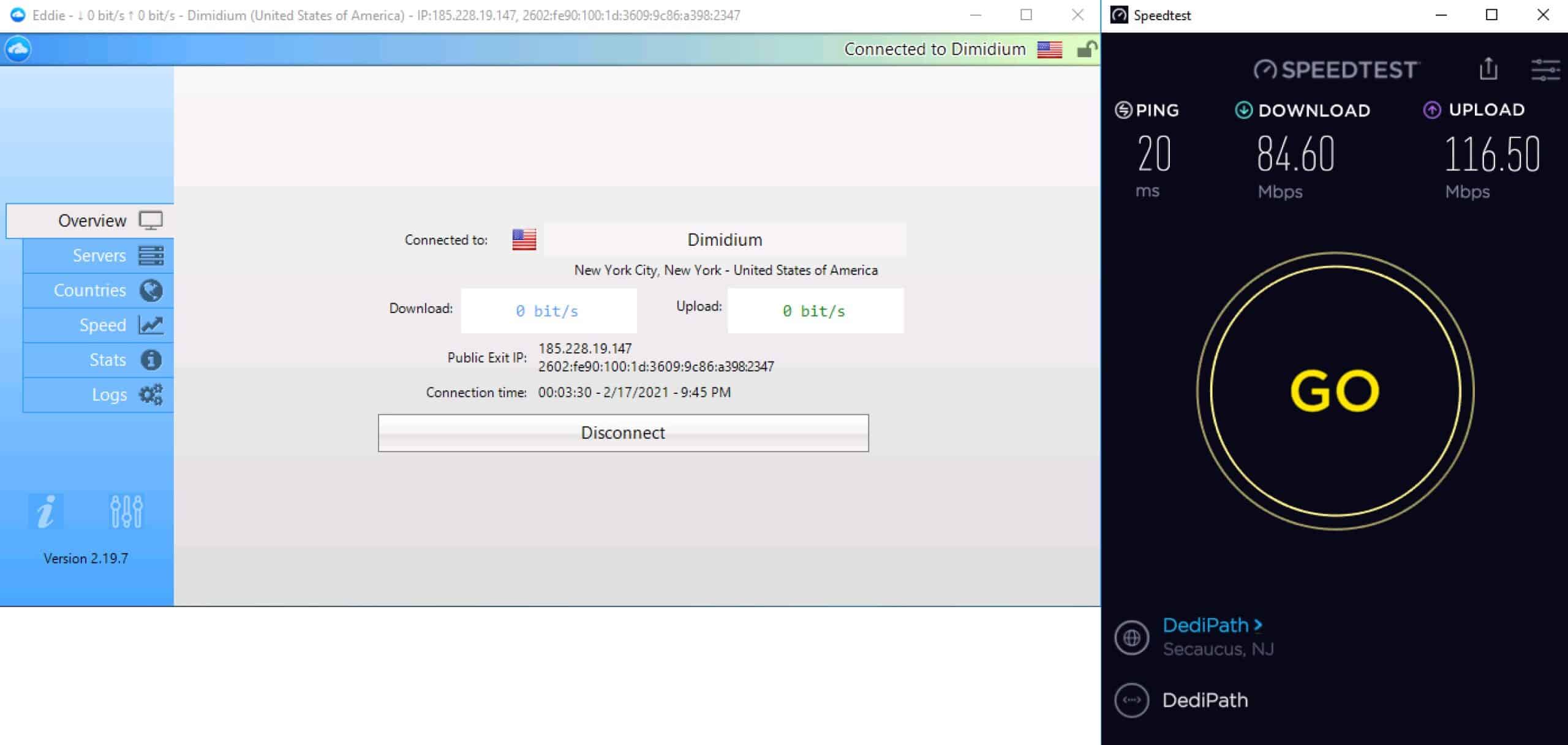

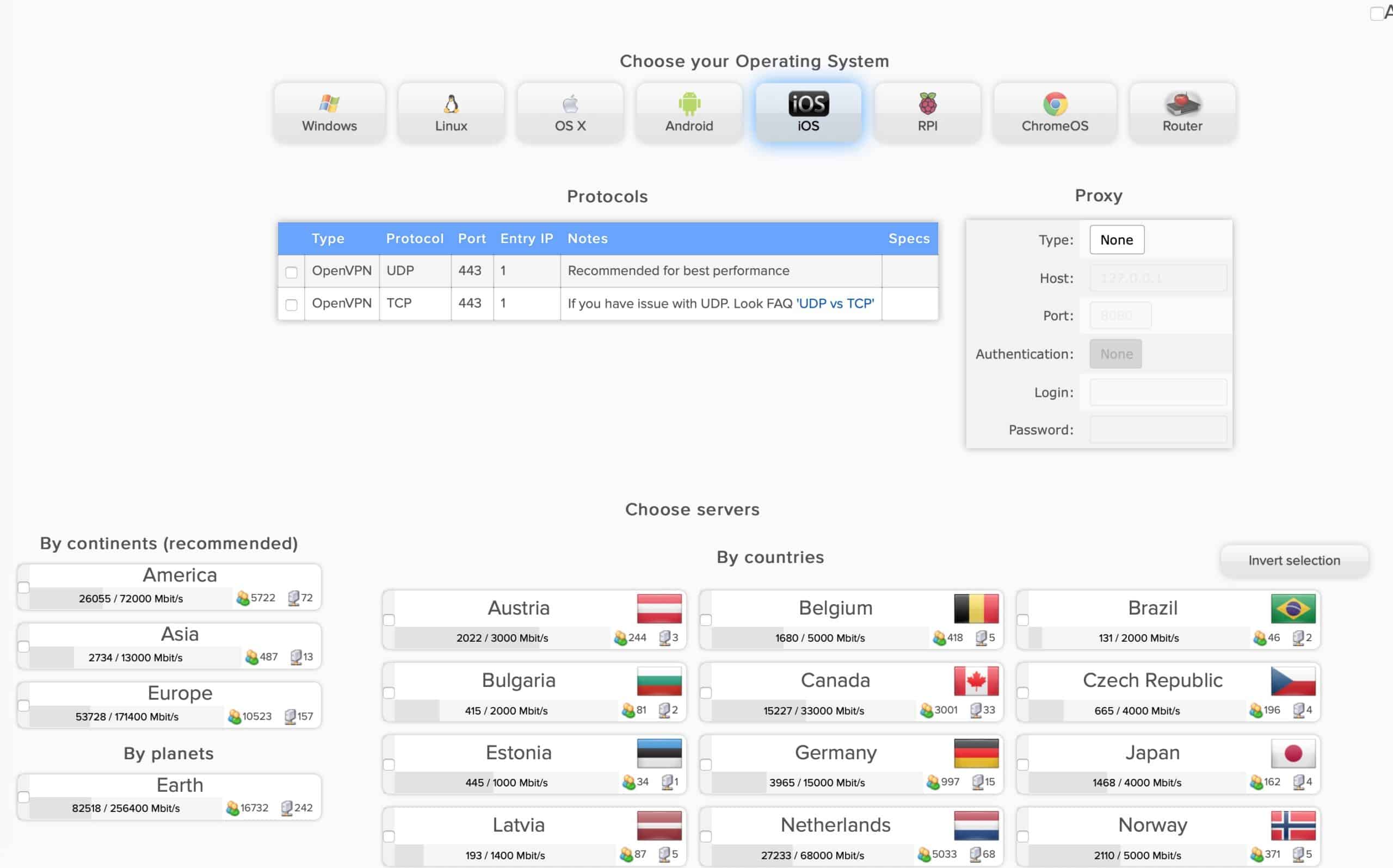
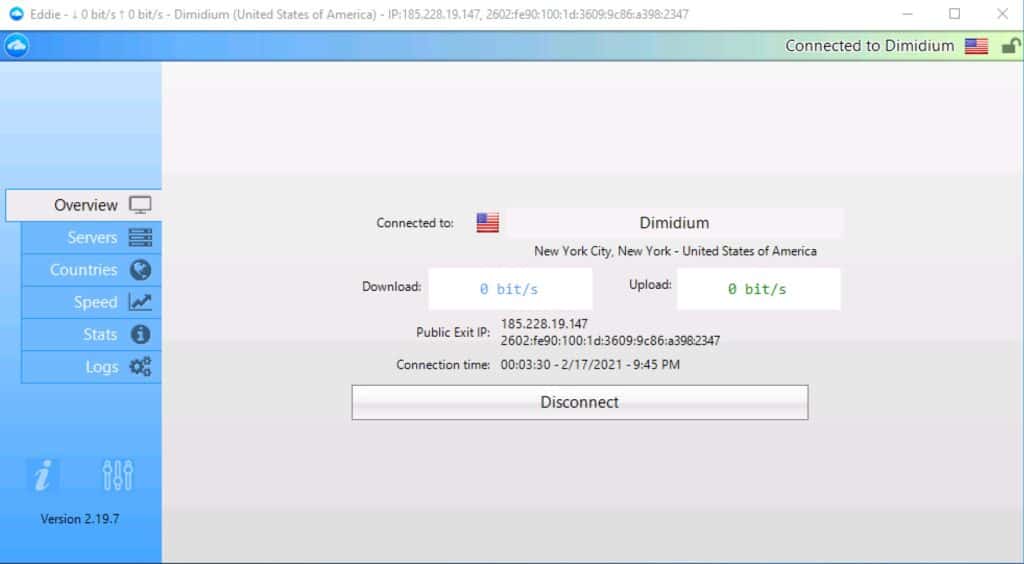
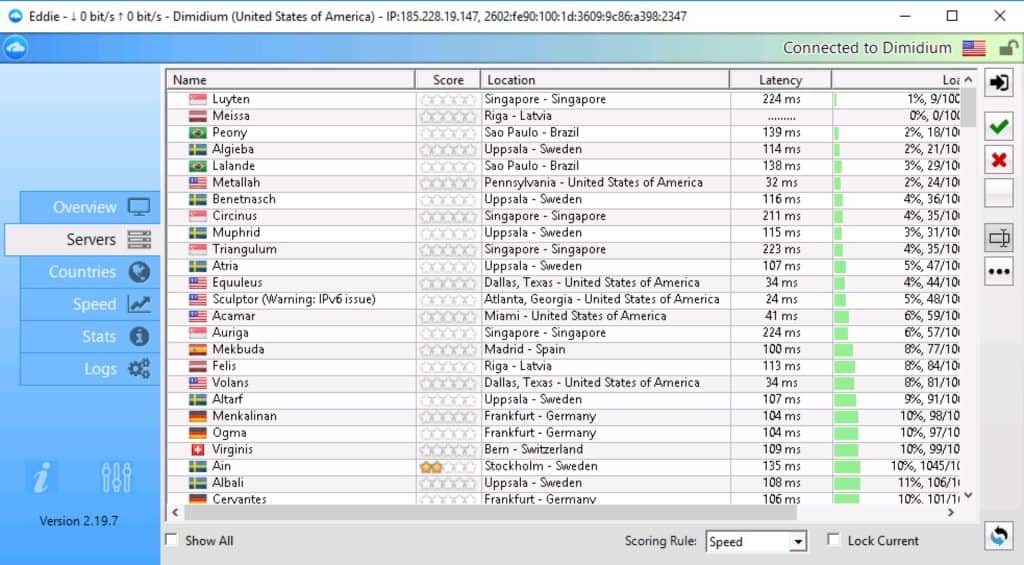
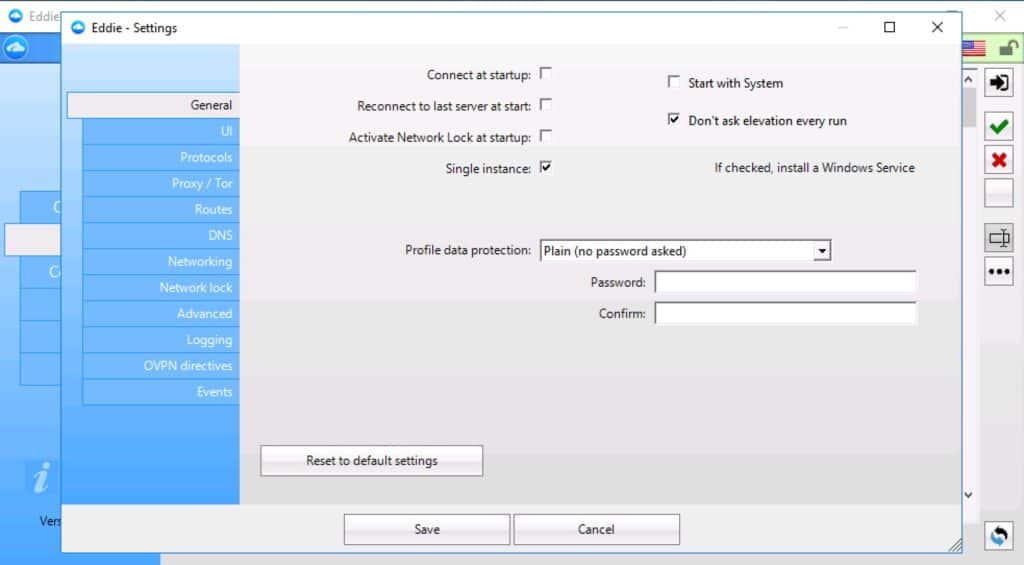


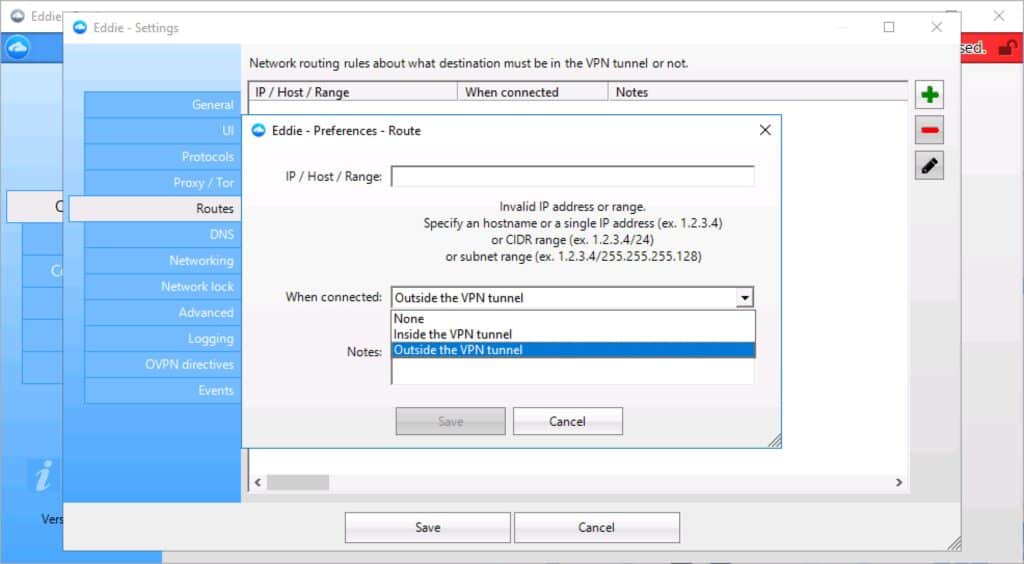



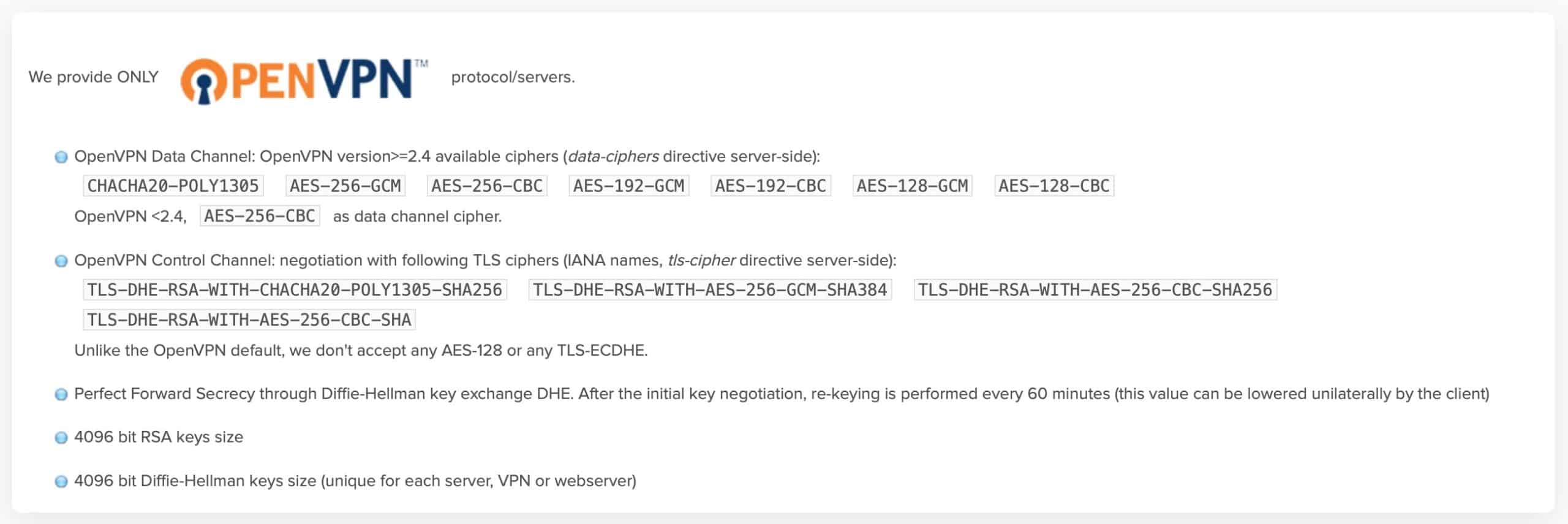
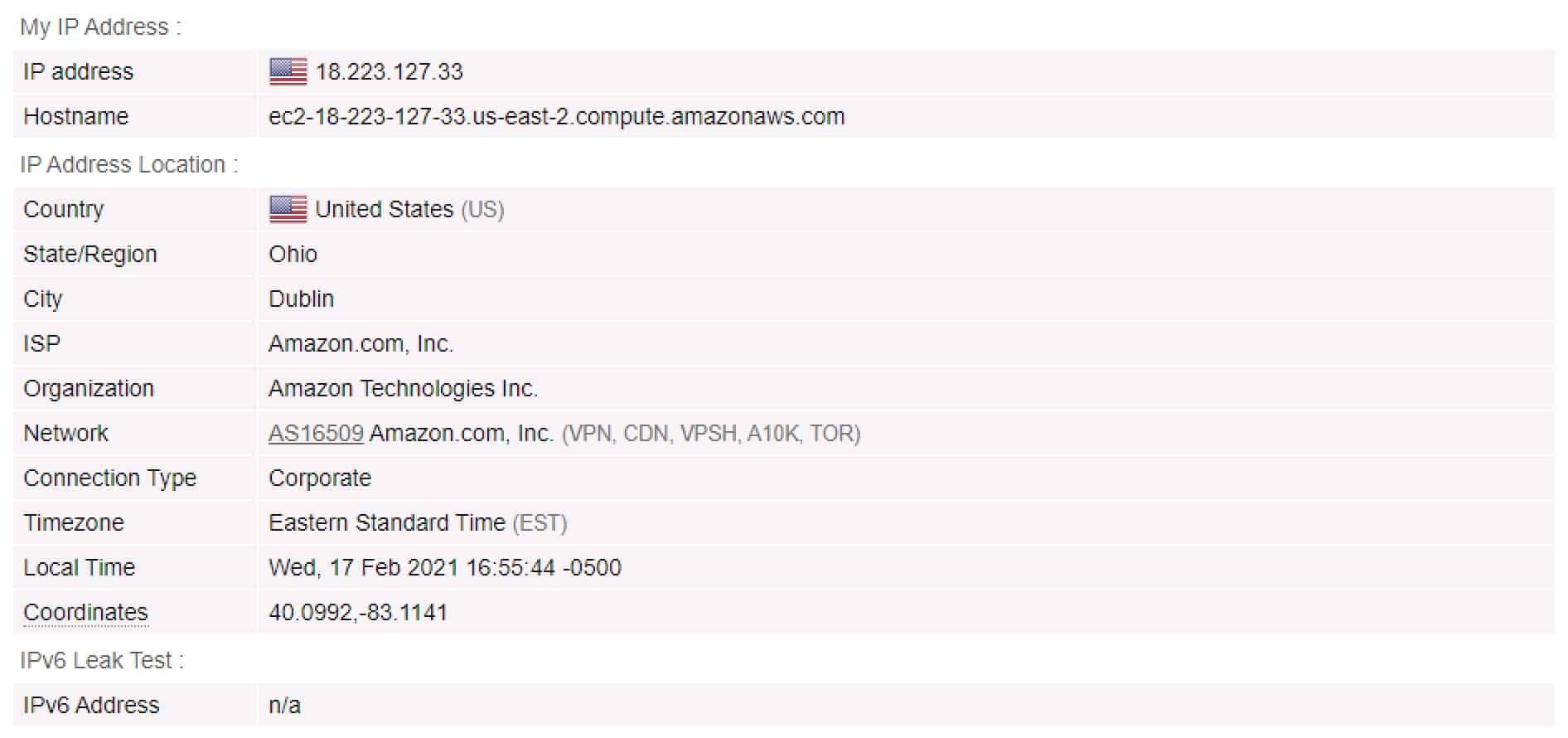
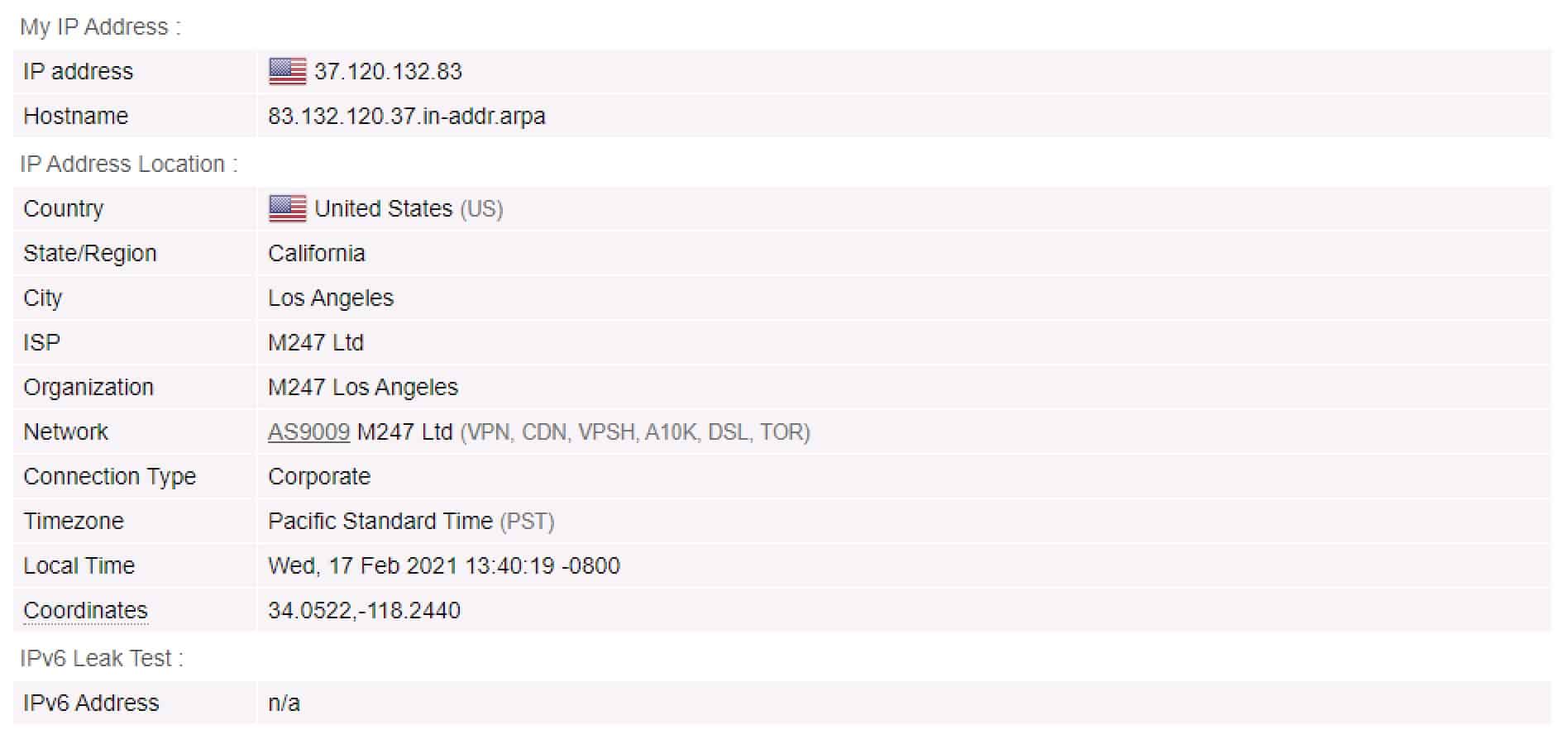
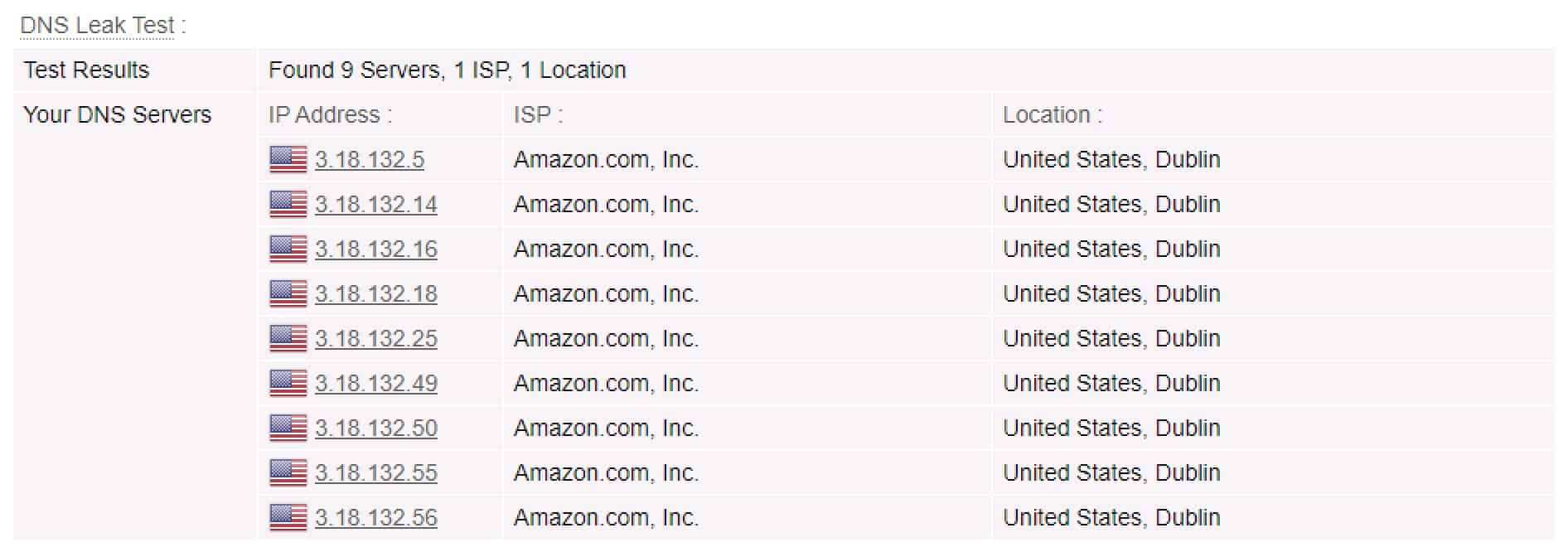

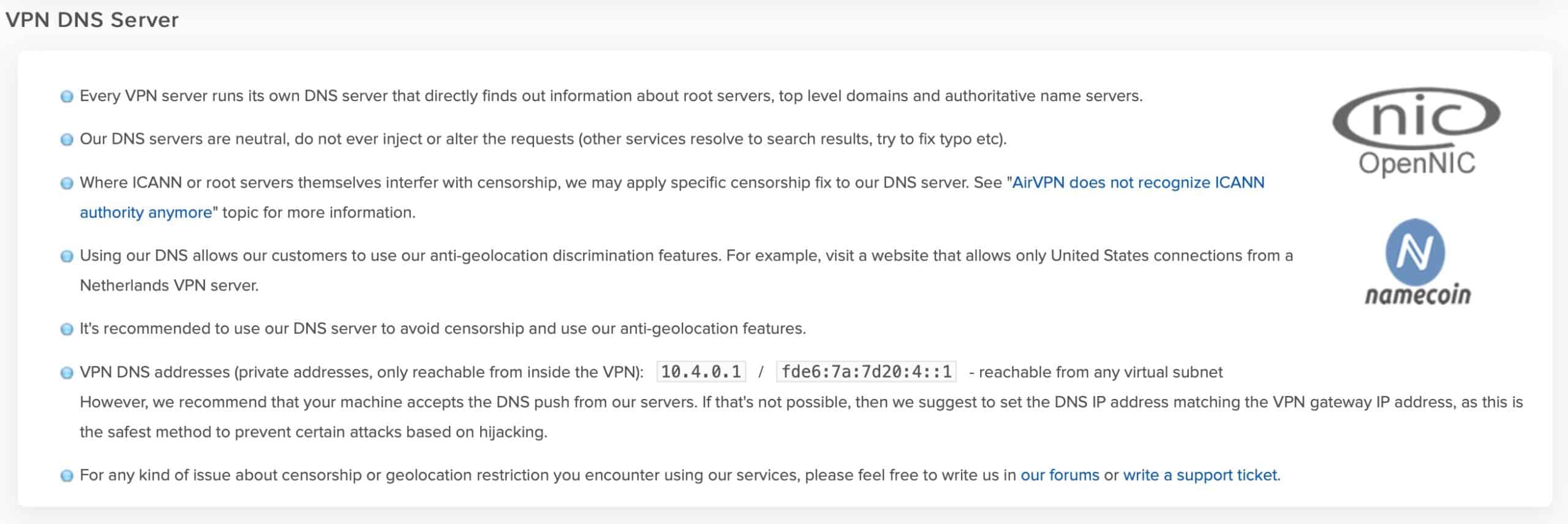

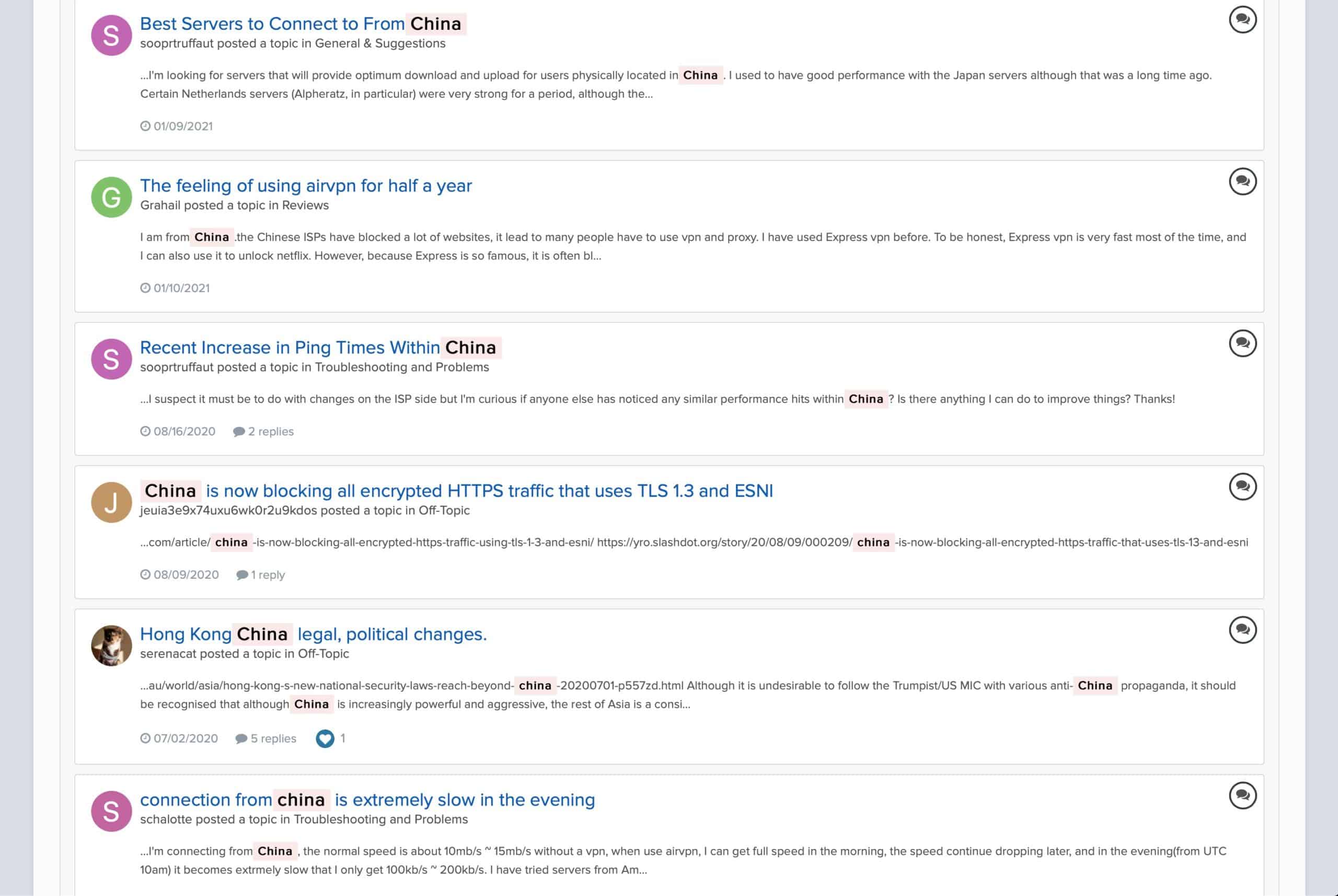
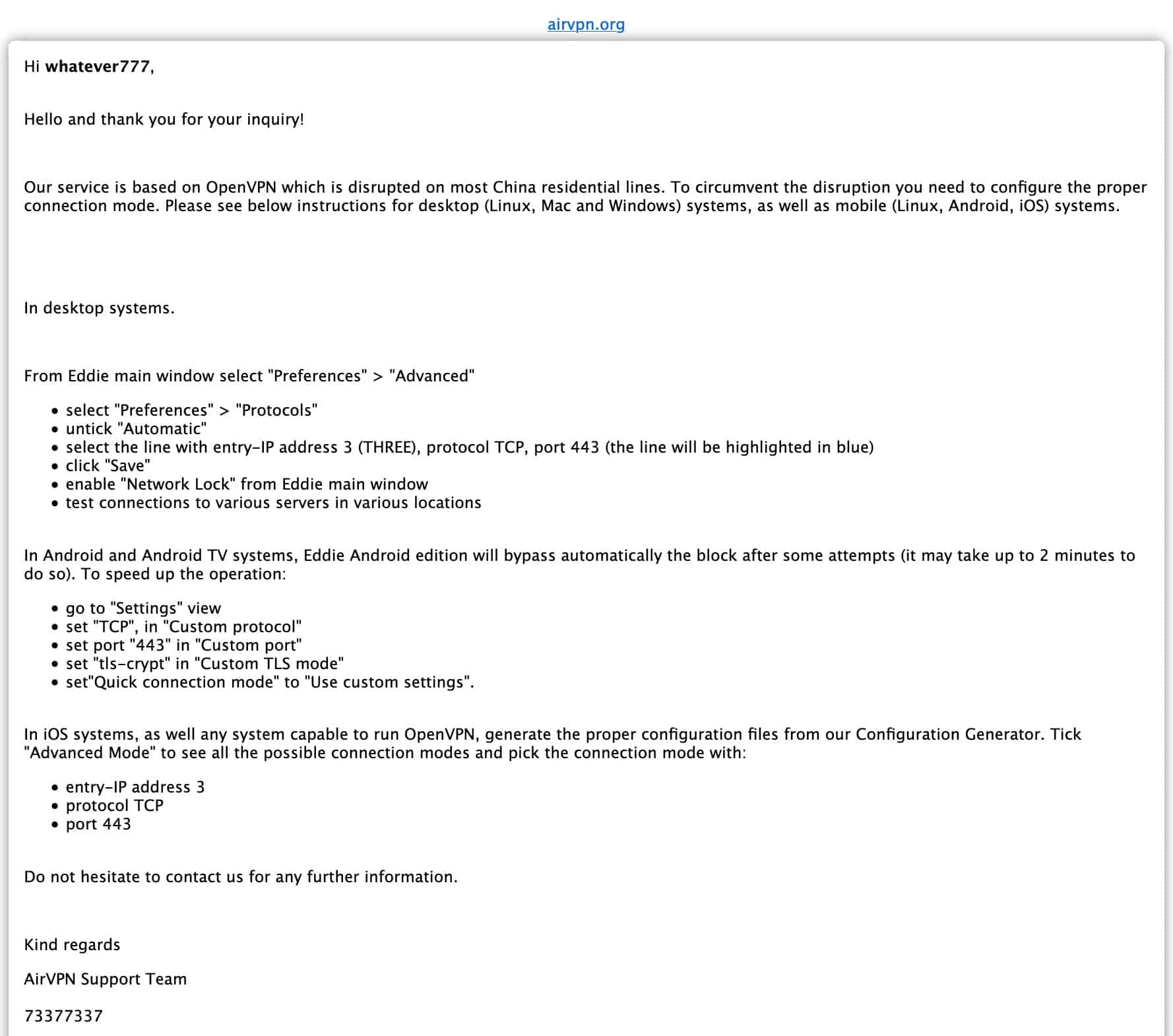

All AirVPN reviews
All Star AirVPN reviews
All AirVPN positive reviews
All AirVPN critical reviews
All related AirVPN reviews
See all reviewsI’m in Central America and working now 6 days with AirVPN without regrets whatsoever. I can access German and other European TV stations (not BBC) and the speed is very fast; working with Wireguard protocol in the terminal and for convenience run the commands through “bashrc” in Linux. I liked the option to try for 3 days for 2 Euros and extended the service because of my great user experience. Anyone who does not need latest streaming apps and looks for good privacy and reliable speed is certainly best dealt with AirVPN. (did not renew service with VyperVPN due to lack of consistency in speed).
I know individual speed results will vary, I am getting +120Mbps in Ontario, Canada. Thanks for the article, there is very little info about this excellent service.